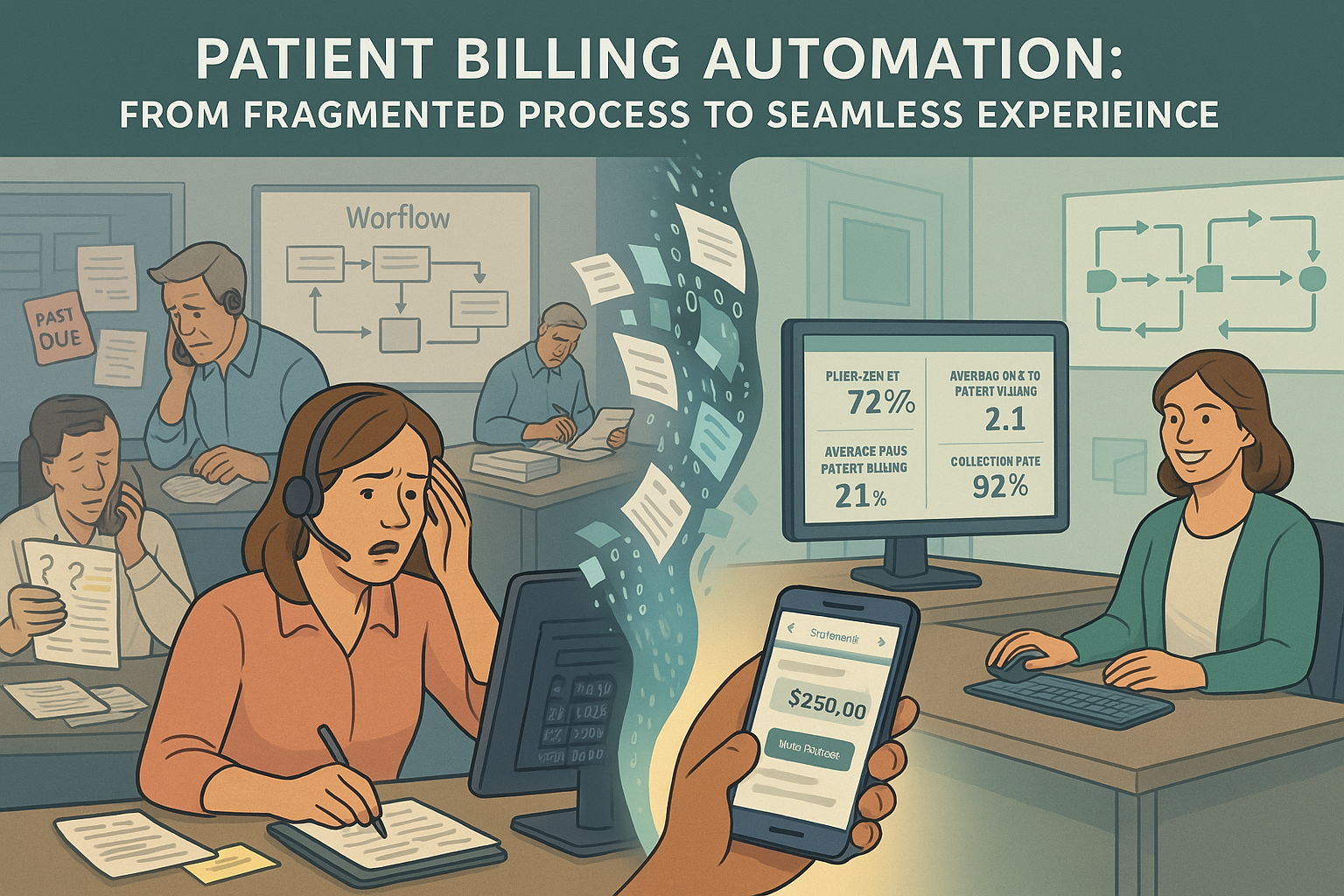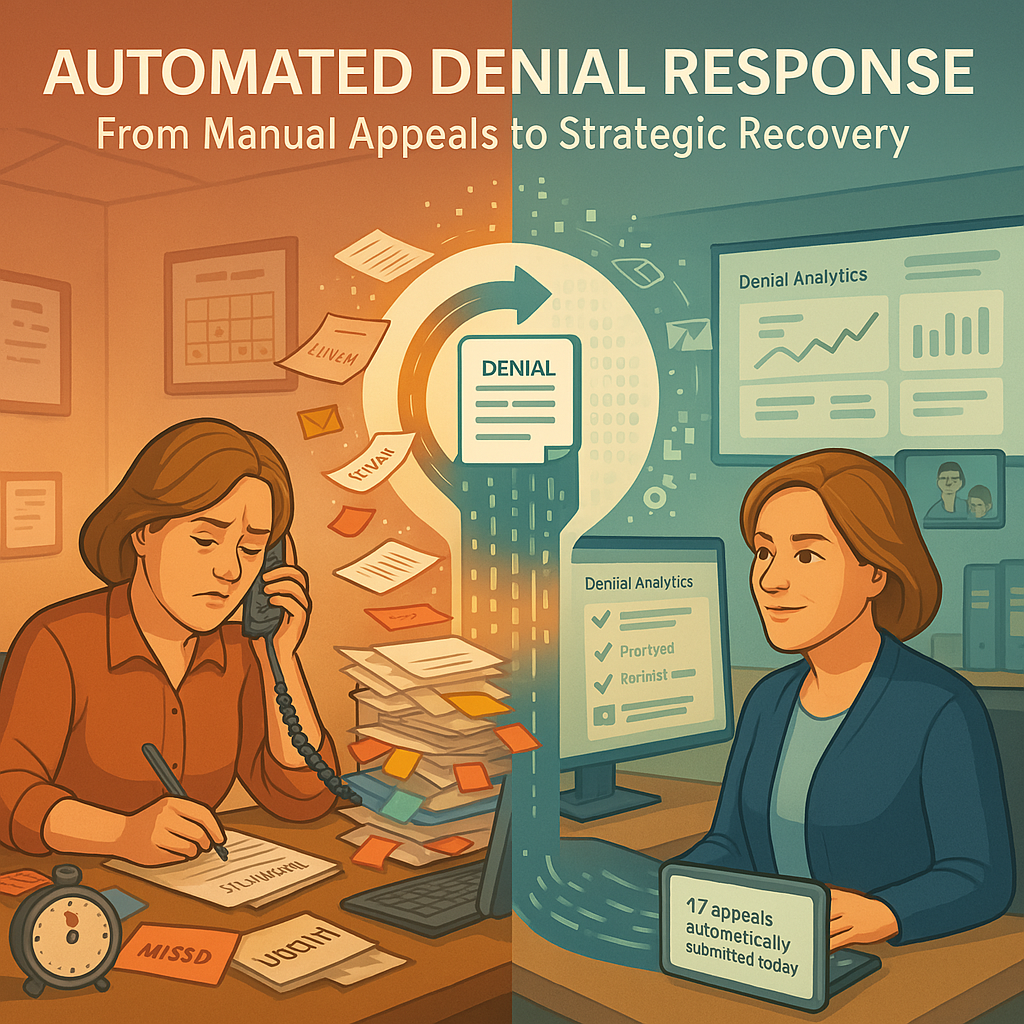In the dynamic and ever-evolving landscape of Revenue Cycle Management (RCM), the efficient meaningful report exchange with RCM partners is critical for success. RCM involves a complex interplay of various processes including patient registration, insurance verification, coding, billing, and collections. Each of these steps generates valuable data that, when analyzed and shared effectively, can significantly enhance the performance and financial health of healthcare organizations.
Advancing RCM Outsourcing Through Effective Accountability
The landscape of Revenue Cycle Management (RCM) is increasingly complex due to evolving insurance regulations and patient payment models. High deductible plans and the expansion of Medicare Advantage have introduced significant challenges, emphasizing the need for strategic outsourcing and robust accountability in RCM practices.
Responsibility in RCM Outsourcing
Outsourcing aspects of the revenue cycle can offer efficiencies, but success depends on the standards of accountability established. Effective management of this relationship can dictate the overall success of outsourcing efforts.
Understanding the Importance of Report Exchange with RCM
The primary objective of RCM is to ensure that healthcare providers are promptly and accurately reimbursed for their services. Achieving this goal requires meticulous attention to detail and seamless collaboration between various stakeholders, including healthcare providers, insurance companies, and third-party RCM vendors. Effective report exchange with RCM is vital in this context as it facilitates transparency, accountability, and informed decision-making.
Reports in RCM can range from basic financial summaries to detailed analyses of billing and coding processes, denial rates, claim status, and payment trends. These reports serve as a foundation for identifying bottlenecks, optimizing processes, and ensuring compliance with regulatory requirements.
Key Elements of Meaningful Report Exchange with RCM
- Accuracy and Timeliness: The accuracy and timeliness of the data being exchanged are paramount. Inaccurate or outdated reports can lead to misguided decisions, operational inefficiencies, and financial losses. Implementing robust data validation mechanisms and ensuring real-time data exchange can mitigate these risks.
- Clarity and Relevance in Report Exchange with RCM: Reports should be clear, concise, and tailored to the needs of the recipient. Overly complex or irrelevant data can overwhelm stakeholders and obscure critical insights. Customizing reports to focus on key performance indicators (KPIs) that align with the organization’s goals enhances their utility.
- Standardization and Interoperability: Standardizing report formats and ensuring interoperability between different systems and platforms streamline the exchange process. Adopting industry standards such as HL7 and FHIR for data exchange can facilitate seamless communication between disparate systems.
- Security and Compliance: Given the sensitive nature of healthcare data, maintaining robust security protocols and ensuring compliance with regulations such as HIPAA is essential. Encrypting data during transmission and employing secure access controls can safeguard against breaches and unauthorized access.
- Actionable Insights: Reports should not merely present data but should also provide actionable insights. Incorporating advanced analytics and visualization tools can help transform raw data into meaningful insights that drive strategic decision-making and process improvements.
Strategies for Enhancing Report Exchange with RCM Partners
- Collaborative Approach: Foster a collaborative environment where all RCM partners actively engage in the report exchange process. Regular meetings, feedback sessions, and joint problem-solving initiatives can enhance mutual understanding and cooperation.
- Leveraging Technology for Report Exchange with RCM: Invest in advanced RCM software solutions that offer robust reporting capabilities. Automation, machine learning, and artificial intelligence can enhance the accuracy and efficiency of data collection, analysis, and reporting.
- Continuous Improvement: Establish a culture of continuous improvement by regularly reviewing and refining processes report exchange with RCM. Encourage stakeholders to provide feedback and suggestions for enhancing report quality and relevance.
- Training and Education: Ensure that all stakeholders are well-trained in interpreting and utilizing reports effectively. Providing regular training sessions and resources can empower them to leverage reports for better decision-making and performance optimization.
Conclusion
Meaningful report exchange with RCM partners is a cornerstone of successful revenue cycle management. By prioritizing accuracy, relevance, standardization, security, and actionable insights, healthcare organizations can enhance their operational efficiency, financial performance, and overall quality of care. Embracing a collaborative approach and leveraging advanced technologies further solidify the foundation for a robust and effective RCM system. In a landscape where data-driven decision-making is paramount, the ability to exchange meaningful reports is not just an advantage but a necessity.










